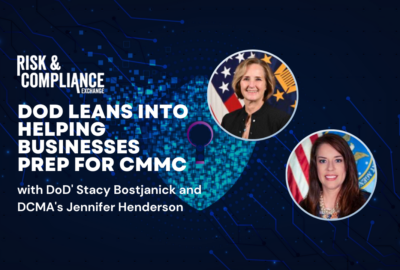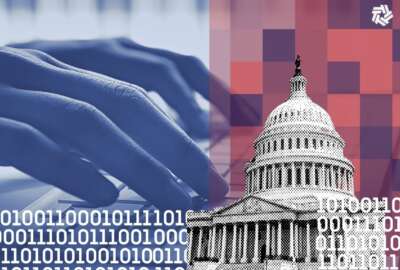GSA rolls out ‘opt-out’ telework policy
The General Services Administration will announce a new policy that expands its telework and mobility options for employees.
wfedstaff | June 4, 2015 1:18 pm
Empty desks will be the new norm at the General Services Administration. The agency has adopted an opt-out telework policy.
Administrator Martha Johnson said nearly all employees will be able to work outside the office.
“We’re assuming people can telework. It’s for the manager and employee to sort out when that really doesn’t make sense, like you’re running the childcare center,” she said. “We’re assuming mobile work, telework is in your life, not out of your life, and working it that way rather than making the justification in the other direction.”
She said the new policy makes work into a “team sport,” with employees having to communicate more directly with each other than when they were sharing office space. 
GSA’s new policy begins with the line, “Work is what we do, not where we are.” It lets employees telework full time with their supervisors’ approval. Employees may lose those privileges, however, if they are absent without leave for more than five days a year, use their government equipment to access pornography, or are noticeably less productive outside the office.
But Johnson said GSA will benefit from employees being out and about.
“We’re simply going to see people aware of GSA, using GSA, relying on GSA and, effectively, the work we have is going to increase,” she said, noting that federal agencies usually do not have to use GSA’s services. “I think that’s going to be one of the ways I’ll subtly measure how well we’re doing: if we’re getting more work and repeat work.”
Management is key
With 78 percent of staff working outside the office at least occasionally, GSA is the exception rather than the rule in the federal government. Agencies were required to increase their use of flexible work arrangements under the 2010 Telework Enhancement Act.
But a new Merit Systems Protection Board survey shows many federal managers worry that telework hurts office dynamics.
MSPB’s study found telework provides benefits while employees maintain productivity and performance. But the key is to manage the telework process appropriately.
Agencies must ensure supervisors have the necessary skills and support to manage performance in a telework environment, such as a good performance-management process and a well thought-out
Read more: Technology
“[O]rganizations need to identify and weigh the pros and cons of telework for their situations and customize approaches that will maximize benefits and minimize challenges,” said MSPB chairman Susan Tsui Grundmann in a release. “Telework does not occur in a vacuum, and organizations need to find the right balance.”
The larger Employee Viewpoint Survey, conducted by the Office of Personnel Management, found that a quarter of federal workers believe they could do their jobs outside the office, but their managers won’t let them.
The survey found 27 percent of employees reported being notified they are eligible to telework and 20 percent report actually teleworking in some form. Of that 20 percent, nine percent do very infrequently and 11 percent said they telework at least one day a month.
Teleworking role models
Along with GSA, OPM, the National Science Foundation and the Pension Benefit Guaranty Corp. have about 75 percent of their workforce teleworking at least one day a month.
For the 2011 telework report to Congress, agencies have to submit data to OPM by Nov. 30. This year, agencies must submit information on subcomponent telework frequency and participation.
OPM Director John Berry, who attended the GSA signing ceremony, said the agency’s approach could serve as a role model for others.
“It certainly helps resolve the question of ‘Why can’t I?'” he said, adding that GSA’s opt-out policy might be “a much easier way to get people certified and eligible and work through the issues in a more orderly and quicker fashion than otherwise.”
GSA Chief Information Officer Casey Coleman discussed the need for mobility during a panel discussion at the Executive Leadership Conference last week. Coleman said GSA is looking into options like hoteling, where employees share workspaces, as well as allowing employees to bring their own devices to work.
Email us your comments.
RELATED STORIES:
Does telework hurt office dynamics? Depends whom you ask
OPM may push telework harder in updated snow policy
Managers need to unleash workers for successful telework
Copyright © 2024 Federal News Network. All rights reserved. This website is not intended for users located within the European Economic Area.





